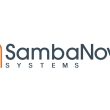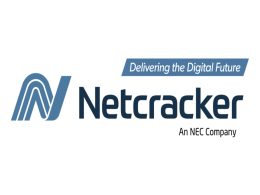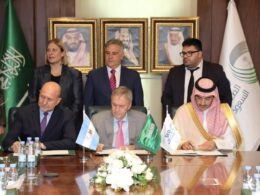Illuminates the path to financial empowerment for women with a ‘Women in Finance’ panel discussion on challenges faced and investment opportunities
Key Highlights:
- Only 7.5% of women in the MENA region have a high level of investment education, yet 62% want to be more active investors, showing a strong desire to improve their financial skills.
- Emirati women own 128,000 SME businesses, yet financial products made especially for women would provide more women with access to start their businesses.
- 86% of employees want to work with companies with ESG principles, and 83% of customers think companies must have ESG principles.
Women aiming for financial inclusion face several challenges due to cultural norms and traditional gender roles. The lack of appropriate legal and policy frameworks poses significant barriers to women’s economic empowerment. Low financial literacy rates among women and poor access to capital impose severe challenges towards achieving a solid foundation for financial independence among women. To discuss these issues threadbare, share potent insights and pave the way towards gender equality and economic independence amongst women in the Middle East, APM Capital hosted a panel discussion with industry experts to drive a meaningful change in the finance world.
A selection of expert panellists including Umarrah Shafiq (Chartered Financial Advisor), Dagmar Turkova representing the European Women’s Association, Natalia Ishchenko of FlyInvest, Tola Denloye (Financial Regulation and Governance, APM Capital), Nada Sayarh from S.P. Jain School of Global Management and Katy Holmes from the British Chamber of Commerce Dubai contributed their views on the positive outcomes of women inclusion in asset creation and management.
Tola Denloye, Financial Regulation and Governance at APM Capital said, “It is crucial to recognize women as equally talented architects of the future. It is simply a lost opportunity that half of the population is not given the same level of financial inclusion. It also requires changes in the policy and legal framework complemented by equal opportunities in securing jobs across markets to boost the overall efficiency and potential.”
Setting the pace for the insightful discussion, Alexandra Reyes, Transformational Empowerment Coach and Moderator for the first panel followed through with a crucial sentiment on why achieving financial independence could mean living a life of fulfilment and purpose for women. The power of investing and wealth accumulation is an imperative tool for personal and societal change, and its profound impact can secure the future, protect against inflation, and help close the wealth gap. With steady progress in financial independence for women, Financial Literacy as a foundation still needs further action to equip the Middle East’s women.
“Financial literacy among women in the Middle East remains underdeveloped, though progress is being made. The situation is even more challenging in countries like Yemen and Iraq, where fewer than 20% of women are financially literate. A recent survey by the Arab Monetary Fund revealed that women in the region frequently feel marginalized from financial decision-making processes within their households and broader economic contexts. Bridging this gap is imperative, as financially literate women are more likely to engage in the workforce, initiate businesses, and contribute meaningfully to economic development.“, said Natalia Ishchenko of FlyInvest. She further observed that the UAE is making great strides, as 80% of adult women in the UAE have bank accounts, which is higher than the regional average and a positive sign.
Many women lack basic financial knowledge, so initiatives like ADCB MoneySense, ADIB’s Smart Money Program, CBD’s Budget and Track, and the Ghaya Financial Literacy Program strive to improve financial literacy and empower women to participate more actively in the economy.
Dagmar Turkova said, “Many women are familiar with managing personal finances like banking, insurance, and mortgages, but they often lack experience running businesses or handling more complex financial matters unless they’ve studied business or worked in a family business. As per a 2023 report, only 7.5% of women in the MENA region have a high level of education on investment.” This rate indicates a considerable scope for improvement among women in understanding higher-level investment. Despite this, 62% of women want to become more active investors, wishing to improve their financial skills. A recent report revealed that Emirati women own well over 128000 small and medium businesses, making them a considerable economic force to reckon with. Financial products made especially for women will provide them with better access to capital and funding, encouraging more women to start their businesses.
The panelists identified cultural norms and legal frameworks as critical barriers to achieving financial independence for women in the UAE. Cultural expectations often limit women’s participation in the workforce, and legal frameworks, such as Sharia-based inheritance laws, can pose challenges to women’s financial autonomy.
Speaking of financial empowerment opportunities, the panel agreed that small business ownership offered significant exposure. According to the International Finance Corporation, women-owned businesses constitute about 30% of SMEs in the region yet receive just 7% of total funding. Robust support systems are crucial for the success of women entrepreneurs as they often lack access to the financial assets required to secure business loans. Microfinance institutions and government-led finance solutions could fill the gaps, while women could use mentorship and networking platforms to hone skills needed to scale businesses.
Environmental, Social, and Governance (ESG) was also an integral aspect of the panel discussion. Furthering the topic, Tola Denloye said, “ESG is the lens through which we humans can assess the broader impact of environmental, social, and governance decisions on society and the environment. It is also the framework within which we advocate and champion the tenets of each ESG principle”. While the world feels dominated by the Environmental factors in ESG investing today, there is an increasing consideration of the social factors that evaluate a company’s impact on customers, employees, local communities, and society in general. By 2030, many investors believe Social will contribute more to shareholder value than Environmental. This shift also means that Gender Equality needs further attention and action from the leaders.
Katie Holmes from the British Chamber of Commerce Dubai explained how critical ESG had become; she said, “83% of consumers think that companies must have ESG principles, 91% of business leaders believe they have a responsibility towards ESG and 86% of employees want to work for companies with ESG principles.” With more and more stakeholders insisting on including the ESG principles, it opens new vistas for women in ESG investing. With their natural inclination towards societal and environmental concerns, women are in a vantage position to guide and promote ESG investing through various ESG investment portfolios.
Concluding the discussion, the experts agreed that achieving sustainable impact requires a change in approach and attitude. Women in the Middle East work across industries and unleashing their potential in financial planning requires understanding cultural needs and barriers. Financial literacy will allow women to comprehend and make well-informed financial decisions and effectively manage their money, both personal and business funds.










